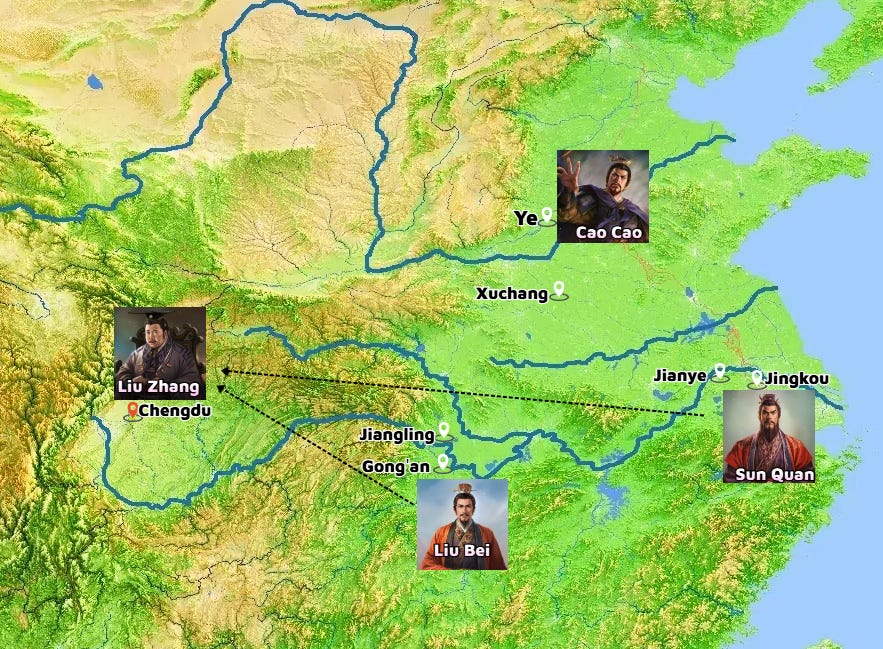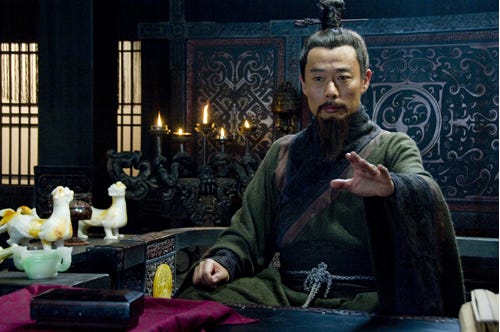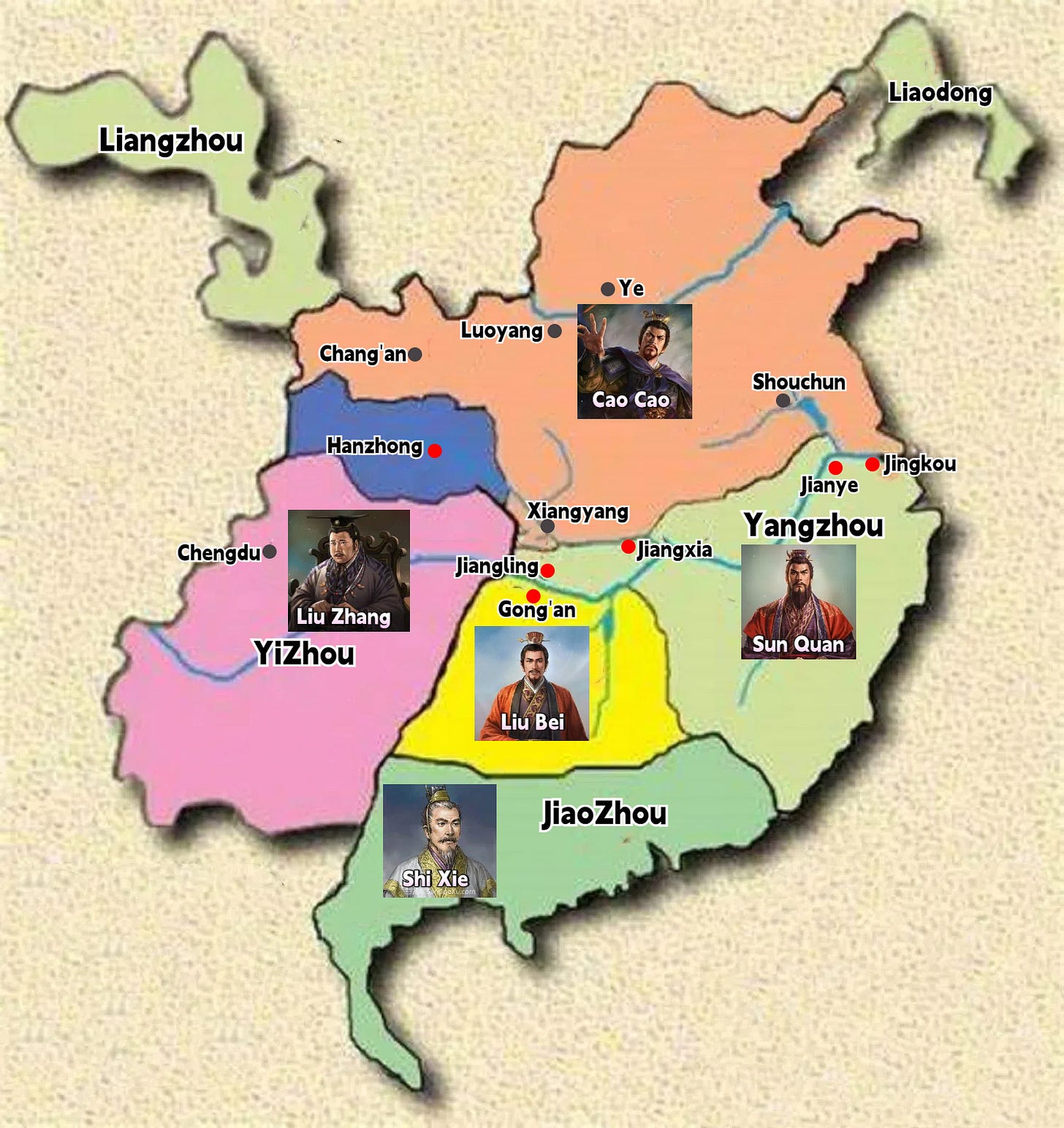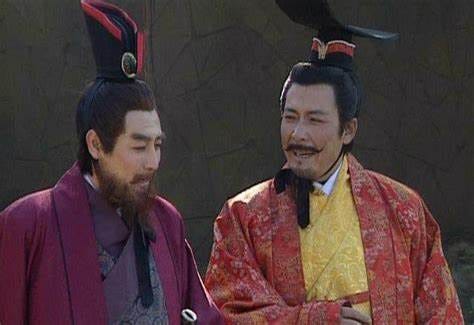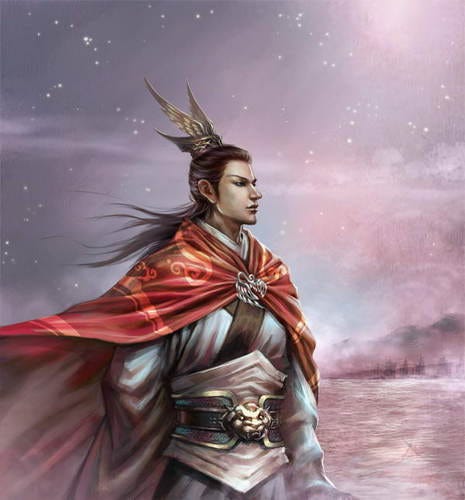The First Political Game Between the Sun-Liu Alliance(Three Kingdoms 62)
The real "borrowing Jingzhou" in the history
Previous Chapter :Tragedy of the Real "Sun ShangXiang"
After the marriage alliance between the Sun and Liu families, their coalition was further solidified. Along the middle and lower reaches of the Yangtze River in Provinces of Jingzhou and Yangzhou, they confronted Cao Cao in a stalemate, with neither side able to advance further.
Consequently, Sun Quan turned his gaze toward Liu Zhang, who controlled the isolated Yizhou.
He sent envoys to Gong’an, proposing a joint military campaign with Liu Bei to attack Shu蜀 (Yizhou).
Yizhou was the next strategic objective explicitly outlined by Zhuge Liang in the “Longzhong Strategy”. Naturally, Liu Bei did not want Sun Quan involved, yet he could not openly refuse, leaving him in a dilemma.
His Registrar, Yin Guan殷观, advised: “If we attack Liu Zhang now, victory is uncertain. Should we fail, Sun Quan will seize our four commanderies in Jingzhou. His scheme is truly treacherous! Let us verbally agree but refuse to mobilize, citing our recent conquest of the four southern Jingzhou commanderies. If Sun Quan insists on acting alone, we can reap the spoils of their conflict.”
Liu Bei was delighted. He relayed Yin Guan’s words to Sun Quan, who indeed abandoned the plan to attack Yizhou. Yin Guan was promoted to Assistant Governor of Jingzhou.
With Sun Quan’s Yizhou campaign thwarted and Liu Bei himself trapped south of the Yangtze—unable to enter Shu or challenge Cao Cao—both men grew deeply frustrated.
To break this deadlock, in 210 AD, Liu Bei returned to Jingkou(modern Zhenjiang镇江) to meet Sun Quan. His message was clear: “Gong’an is too constricting. I request control of the northern bank of Nanjun南郡 Commandery along the Yangtze, including Jiangling City, so that my title as Governor of Jingzhou may hold true authority.”
Liu Bei’s request has sparked debate among historians for centuries.
Argument 1:
Some argue Liu Bei was not “borrowing” Jingzhou. The region originally belonged to Liu Biao. After Liu Biao’s death, Cao Cao seized it. With Cao Cao’s retreat, rightful ownership should have passed to Liu Qi, Liu Biao’s heir. Now that Liu Qi too had died, his followers endorsed Liu Bei as Governor, making Liu Bei the legitimate ruler. Moreover, Guan Yu and Zhang Fei aided Zhou Yu in capturing Jiangling. Thus, Liu Bei’s demand for parts of Nanjun Commandery was justified.
Rebuttal: In my view, this argument lacks merit.
In times of chaos, territory belongs to those who hold it by force. Zhou Yu secured Jiangling by defeating Cao Ren. Though Guan Yu’s “blockade of the northern routes” (绝北道) contributed significantly, the Wu army bore the brunt of the main battles.
Furthermore, Zhou Yu had already granted Liu Bei lands south of the Yangtze in Nan Commandery. Sun Quan owed no debt.
Argument 2: Others claim Liu Bei exchanged parts of Jiangxia Commandery (inherited from Liu Qi) for Nanjun Commandery, rather than borrowing it.
Rebuttal: Historical records lack evidence for this. Nanjun Commandery was a strategic linchpin: it offered access north to attack Cao Cao via land and water, south to the plains of Southern Jingzhou, and west to the throat of Yizhou.
Jiangxia, by contrast, was sparsely populated and marshy. Even the entire Jiangxia Commandery could not rival the value of Jiangling City(the capital of Nanjun) alone.
Moreover, the northern Yangtze portion of Jiangxia was controlled by Cao Cao, while its southern lands had been annexed by Sun Quan before Liu Biao’s death. What remained of Liu Qi’s “Jiangxia” was a sliver of territory—hardly bargaining material for Nanjun Commandery.
Thus, I contend it was indeed a loan, with no need for pretense.
The Records of the Three Kingdoms: Biography of Lu Su explicitly states: “After meeting Sun Quan, Liu Bei ‘pleaded’ (求) to oversee Jingzhou. Only Lu Su urged Sun Quan to ‘lend’ (借) it to him, to jointly resist Cao Cao.”
The use of both “pleaded” and “lent” in historical texts confirms Liu Bei’s sincere appeal for the territory.
Within Wu’s court, opinions split sharply:
Lu Su’s鲁肃 Pro-Alliance Faction agreed to the loan, arguing it would divert Cao Cao’s focus and alleviate pressure on Wu.
Zhou Yu’s周瑜 Hardline Faction vehemently opposed:
“Why should we lend you cities won with our blood? Do not forget my arrow wound still aches! The seat of Jingzhou is Xiangyang襄阳. If you, the Governor, find Gong’an too stifling, go ‘borrow’ Xiangyang from Cao Cao! Are you jesting?”
Zhou Yu further petitioned Sun Quan to detain Liu Bei and seize control of his forces.
In truth, Sun Quan leaned toward Lu Su’s view.
First, he had tasted the benefits of the alliance.
Second, Liu Bei was trapped: to his west lay impassable mountains, to the east and north Sun Quan’s own territories, and to the south lay Jiaozhou交州, which Sun Quan already coveted. Confining such a man—Liu Bei—to this cage risked rebellion. “If this brother-in-law’s ambitions find no outlet,”Sun Quan reasoned, “he will turn his fangs on us.”
Ceding the buffer zone between Cao Cao and Liu Bei, allowing them to entangle, might prove advantageous.
Yet Zhou Yu’s staunch opposition stalled Sun Quan’s decision. As for detaining Liu Bei, Sun Quan deemed it too risky: Guan Yu and Zhang Fei’s loyalty meant they would retaliate fiercely—even aligning with Cao Cao—rather than serve Sun Quan.
Thus, Liu Bei returned empty-handed along the Yangtze.
Sun Quan hosted a grand farewell banquet attended by Zhang Zhao张昭, Lu Su, and Qin Song秦松.
Privately, Liu Bei warned Sun Quan: “Zhou Yu’s civil and military prowess is unparalleled. He may not remain subordinate—guard against him!”
Back in Gong’an, Liu Bei told his aides: “Sun Quan has a long torso and short legs—a man of vast ambition. I dare not meet him again!”
By sowing discord between Sun Quan and Zhou Yu and vowing never to meet Sun Quan again, Liu Bei signaled readiness to rupture the alliance. Should he march east, south, or north, the Sun-Liu coalition would collapse, leaving Cao Cao to relish the spectacle.
Yet at this critical juncture, fortune smiled generously upon Liu Bei.
Soon after his return, news arrived from Wu: Zhou Yu—the 36-year-old commander who loathed Liu Bei, the scholarly general with a feather fan and silk headscarf, whose charm masked strategic brilliance—had died of illness.
Thus, the wheels of history, poised to pivot, halted abruptly at the crossroads.
To be Continued.
Your support is my greatest motivation!


